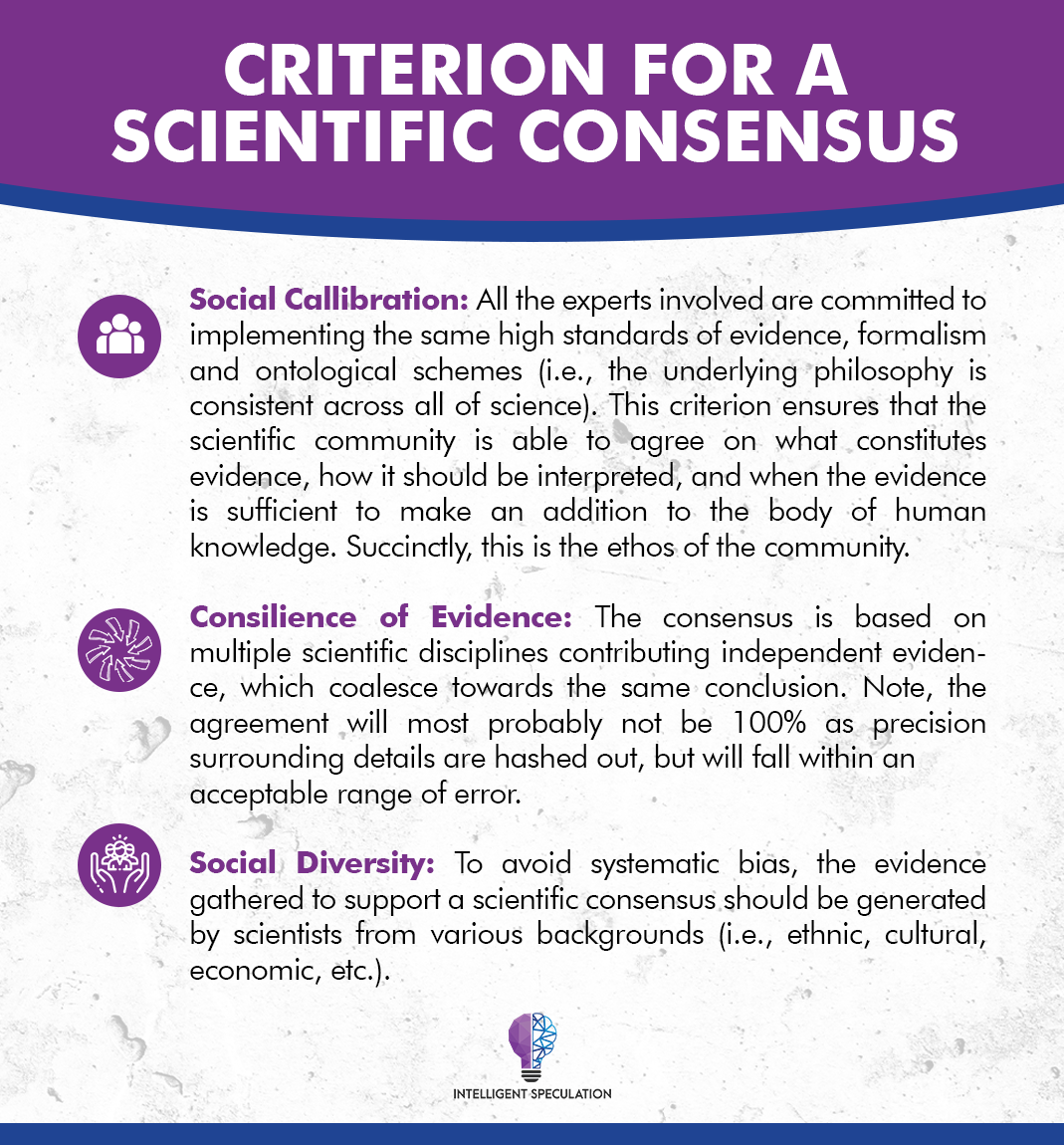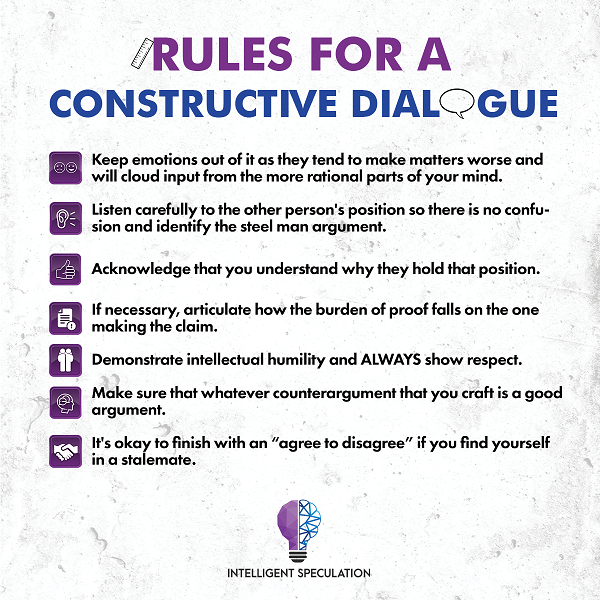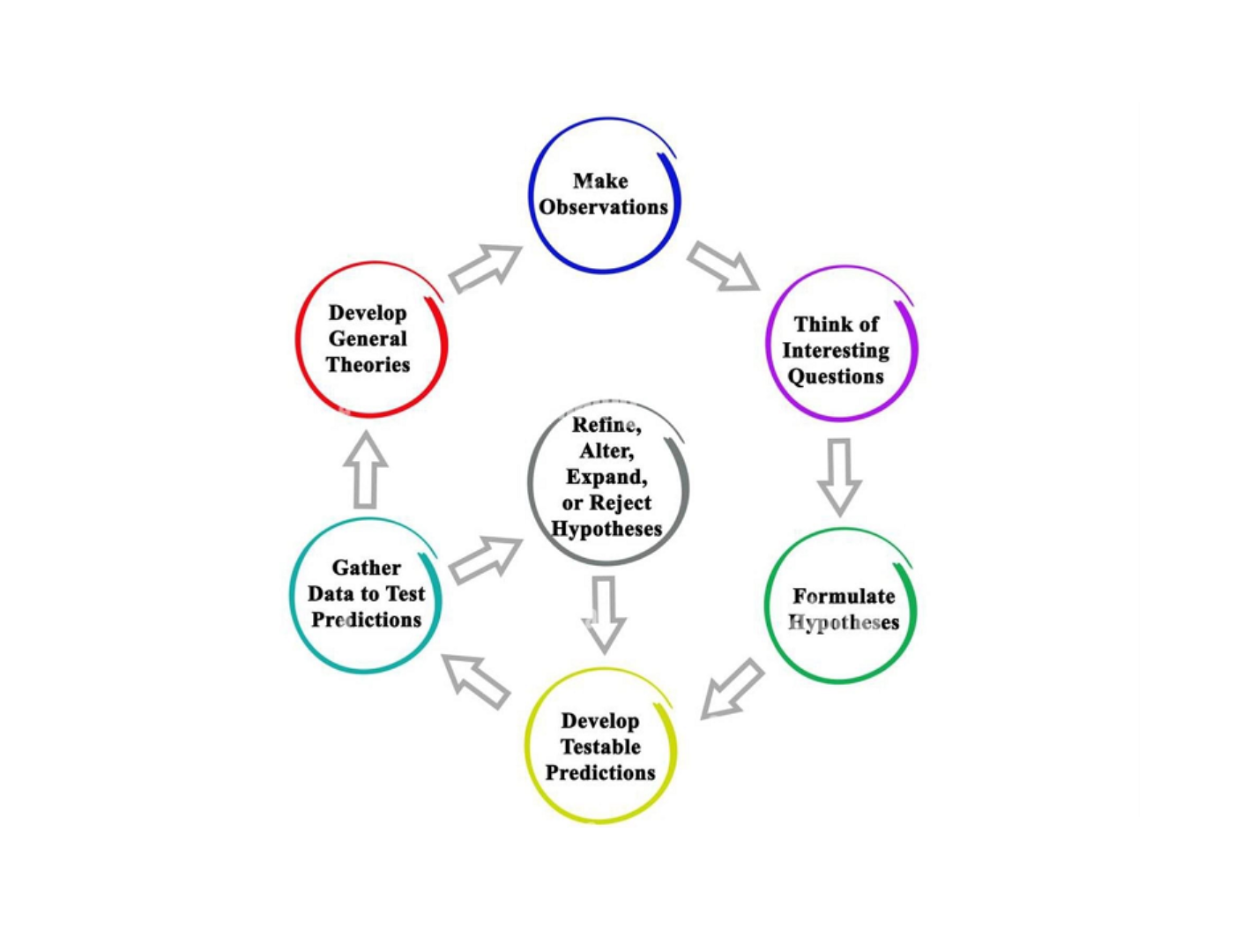An informal fallacy where a claim is accepted or rejected based on the source of the evidence rather than on the quality of the evidence. The fallacy shifts focus onto the origin in an attempt to…
Read MoreAn informal fallacy where a realistic [insert something, someone, solution, etc. here] is compared to an idealized, unrealistic alternative. This is done in an attempt to….
Read MoreThe term “consensus” is often encountered in daily life on the news, in causal conversation, on social media, etc. and most would interpret this word as the majority of opinion. However, once you attach the word “scientific” in front of it, you move beyond the colloquial terminology into….
Read MoreWe have been introduced to the Scientific Method in a previous post. To recap, the process goes a bit like this:…
Read MoreConfirmation bias is a cognitive bias where people have a tendency to search out, interpret, or even recall information in a way that reinforces preexisting beliefs. Once a view is formed, people tend to embrace information that confirms that view while….
Read MorePeople have been participating in debates since the beginning of time. It is a wonderful tool that humans have developed over the millennia to communicate ideas in hopes of reaching an amicable and constructive conclusion. However, in my experience, individuals who partake in….
Read MoreAn informal fallacy where selected evidence is presented that supports the position of the argument, while contrary evidence is withheld. This is done in an attempt to make the argument more persuasive to an audience. Moreover, the greater the volume or strength of the evidence withheld dictates how….
Read MoreAn informal fallacy where you argue that because something is “natural” it is therefore good, better, ideal, etc. While it is true that there are things in this world that are considered “natural” and also fall into the “good “ category (e.g., clean air), this isn't always the case (e.g., earthquakes). Naturalness itself doesn't automatically imply good or bad….
Read MoreThe Principle of Charity demands that one interprets a speaker's statement(s) in the most rational way possible. In other words, when ascribing to this principle, you must consider the strongest possible interpretation of your fellow interlocutor's argument before subjecting it to evaluation. The overarching goal of this methodological principle is to….
Read MoreAn informal fallacy where you substitute a person's argument with a distorted, exaggerated, or misrepresented version in order to make it easier to attack. However, this tactic undermines a rational debate as….
Read MoreA type of cognitive bias where people fail to adequately assess their level of competence or incompetence. Individuals of low ability experience illusory superiority (i.e., an overestimation of one's own qualities and abilities in relation to the same qualities and abilities of others) and incorrectly assess their cognition at a level greater than it is. In other words….
Read MoreA type of informal fallacy where there is an ostensible similarity between two things, but, on closer examination, are in fact not equivalent. The two things may share something in common with one another, but….
Read MoreA type of informal fallacy where you attack the person making the argument instead of the argument itself. This can take the form of blatantly attacking someone in the form of name calling or more subtly attacking an individual’s character in an attempt….
Read MoreThe scientific method is a process implemented in experimentation that is used to answer questions surrounding an observation. However, this is a loose definition as scientists often will modify this process when direct experimentation is not available. For example, scientists studying climate change over large time periods cannot fast-forward time to….
Read MoreA type of cognitive bias where your judgments are influenced by what most easily comes to mind. How emotionally powerful, eccentric, or recent your memories are can make them more relevant to you. For example, when we see a news report about a shark attack or a plane crash, it can make us believe that….
Read MoreA type of formal fallacy where a small first event is suggested to lead to another more significant event, which then leads to an even more significant event, and so on, until some ultimate, extreme event is reached. The connections between each significant event are likely related, but….
Read MoreThere is a psychological phenomenon which people often experience in everyday life when presented with new information. In that moment, if the newly presented information contradicts one of your currently held beliefs, you will most likely feel discomfort or uneasiness. This discomfort is a direct result of humans'….
Read MoreThe word “fallacy” comes from “fallacia” in Latin which means “deceit, trick, deception.” However, the more modern definition for logical fallacies is “faulty reasoning as a result of neglecting the rules of logic” or, more succinctly, just “an error in reasoning.” These errors can…
Read More

















